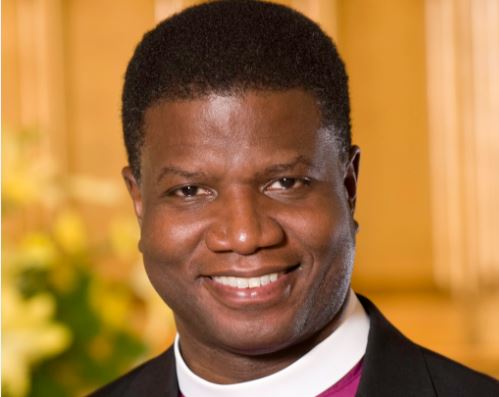As reported by the Baltimore Sun:
The Rt. Rev. Eugene Taylor Sutton issued a statement encouraging the more than 44,000 members of his 117 congregations to refrain from shaking hands while “passing the peace” during services….
“No fingers in the cup!,” Sutton wrote. “If intinction is an important offering for your congregation to practice, we recommend only one hand in the cup, i.e., one clergy person or eucharistic server shall intinct each wafer and place it in the hands of the communicant or on their tongue.”….
The leader of the Episcopal Church in the diocese of Maryland is asking congregants to alter some of their worship practices to minimize the chances of contracting or spreading COVID-19, the coronavirus first reported in China in December that has spread to 70 countries, including the United States….
The Diocese of California issued similar advice. At least one Catholic diocese “suggested all Catholic churches in Brooklyn and Queens, New York, voluntary suspend the distribution of communion in two forms: the drinking of the wine and the placing of the bread directly on churchgoers’ tongues.”
A MESSAGE FROM BISHOP SUTTON ON LITURGICAL PRACTICES AND THE CORONAVIRUS OUTBREAK
Bishop Sutton encourages all congregations to make copies of this statement widely available to their members and to publicly display it in their church buildings.
DOWNLOAD PDF
February 28, 2020
As we are facing a potential global pandemic of the coronavirus (COVID-19), I direct all of our congregations to revisit their current liturgical practices in order to maximize the safety of all worshipers. In an effort to encourage confidence during this time, we issue these guidelines for human interaction during worship, especially around the Holy Eucharist.
Go to Church!
- As long as you are feeling well and have not been in conscious contact with persons and places of known exposure to the virus, then continue to worship as usual. Take the normal precautions if you or a family member is ill (i.e. stay home).
The Passing of the Peace:
- A handshake is not mandated by the Church, and is especially discouraged during this time.
- Continue to verbally share the Peace of the Lord with those around you. Making eye contact, slightly bowing your head, or offering a friendly wave are good substitutes for the traditional handshake or hug.
The Holy Eucharist:
- It is not sacramentally necessary to receive in both kinds the bread and the wine in order to make a full communion. A worshiper’s individual health needs may preclude taking either the bread or the wine.
- Clergy and eucharistic servers: be sure to wash your hands, and consider using an anti-bacterial gel before the administration of communion. Hand sanitizers made available in the pews, if possible, can serve as extra protection.
The Common Cup:
- Medical experts agree that the danger of transmitting communicable diseases by sharing a chalice is negligible. History has borne this out and we still highly encourage this ancient liturgical practice.
- Chalice bearers, be sure to wipe the rim of the cup and turn it after every person is served.
- Intinction (dipping the bread into the cup), however, poses a greater potential threat, especially when the bread is handled with unwashed hands of children and adults. Therefore, we discourage this practice during this period. No fingers in the cup! If intinction is an important offering for your congregation to practice, we recommend only one hand in the cup, i.e. one clergy person or eucharistic server shall intinct each wafer and place it in the hands of the communicant or on their tongue.
As long as we all use common sense we will be fine. If a member of your parish does fall ill, please remember them in your prayers. The bishop’s office is closely monitoring the situation, and we may revise these recommendations as needed.
Blessings and peace,
The Right Rev. Eugene Taylor Sutton
Bishop of Maryland

